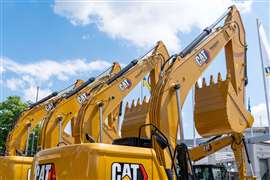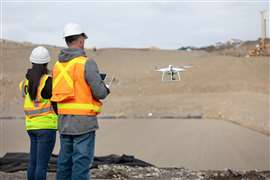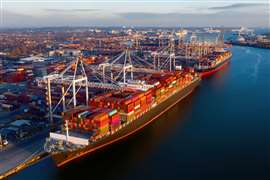Congress approves study on infrastructure costs
07 May 2018

With the expectation of issuing a report at the end of 2018, Congress has authorized the Government Accountability Office (GAO) to launch a study into why infrastructure projects cost much more in the U.S., and especially New York City, than similar projects elsewhere in the world.
In doing so, the GAO will look at the country’s infrastructure costs in the $1.3 trillion spending bill U.S. lawmakers passed in March. As part of the investigation, the agency will study cost drivers like contracting policies, station design and regulatory barriers in other countries, and compare them with those in the U.S.
The GAO will turn particular focus to the high price of construction in NYC, where, according to The New York Times, some rail projects cost as much as $3.5 billion per track mile versus $1 billion in San Francisco and, on average, less than $500 million in the rest of the world.
The Times pointed out in January that the city’s subway construction costs were the highest in the world. The article pointed to trade union deals that ended up with the Metropolitan Transportation Authority paying for four times as many workers as it needed, construction companies taking advantage of their political connections and bumping up bids by as much as 50 percent and consulting firms potentially performing more work than necessary, all with poor oversight from the authority.

Spotlighting massive wage and benefit bumps for union-member tunnel workers who work weekends or overtime, findings also revealed how such a “bonanza” for a small group of consultants, contractors and laborers has siphoned off funds that could have gone to sorely needed maintenance for the city’s subway system.
Patiently waiting
Additionally, the Trump administration said last month that it will likely have to postpone its $1.5 trillion infrastructure package until after the fall midterm elections.
According to The Wall Street Journal, the White House will instead focus on changing environmental and other permitting regulations through administrative and legislative means. The Journal reported that the president is committed to passing his entire infrastructure plan, even if that process pushes into 2019.
As explained by his Council of Economic Advisers, the president’s pitch notes that the full $1.5 trillion package will add between 0.1 and 0.2 percentage points to average annual real growth in gross domestic product over a 10-year period.
Poised for passage
If the full funding is approved, and Trump’s administration is able to work through the process to get it all passed, it will obviously be huge for our industry.
From minimizing congestion to increasing safety of our roadways to sales of cranes and trucks and trailers and rigging gear – to the transportation of all of the steel and concrete pipe, the materials used for infrastructure projects, all the crane and rigging work – it’s a win across the board.
The reality for us as an organization: you have the U.S. Chamber of Commerce – the largest business lobby in the country – pushing for infrastructure spending. All of the major transportation and construction-related associations are fully engaged in lobbying Congress to move this along. So, we’re 100 percent behind it. We understand the politics of it, and we hope the bill is able to weather the politics and see its way to successful passage this year.
That said, SC&RA is absolutely poised to hit the ground running when it passes. Our guys are ready: ready to jump in and provide the equipment, do the work and much more. Unfortunately, politics often get in the way of progress, but fortunately, there’s enough commonality and enough clear agreement by both parties to understand that we need this for the U.S. economy, global competitiveness, congestion relief and basic citizen safety.
If we don’t make these improvements, we’re going to fall behind many other countries economically in this regard. And there’s no room for that.






